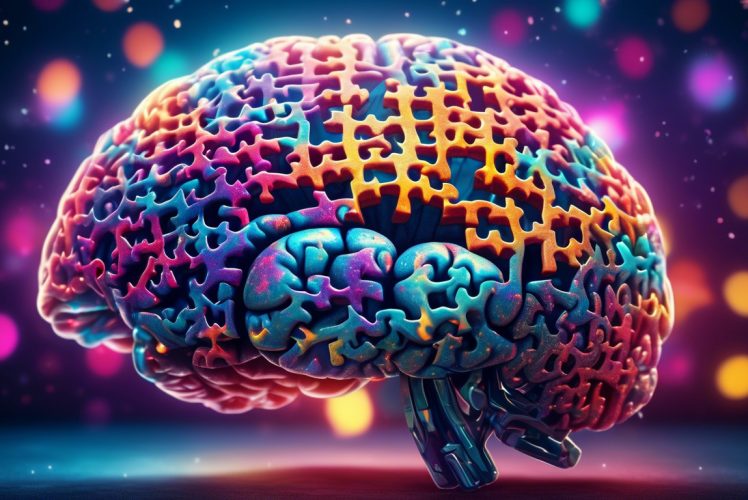
Puzzle games have long been recognized as an engaging form of entertainment that also offers substantial cognitive benefits. These games, ranging from traditional jigsaw puzzles to complex digital brainteasers, are designed to stimulate the mind by presenting challenges that must be solved through:
- Logical reasoning
- Pattern recognition
- Strategic thinking
Cognitive Benefits:
-
Enhancement of Problem-Solving Skills: Engaging with puzzle games significantly enhances problem-solving skills, fostering an environment where critical thinking and creativity are paramount.
-
Improved Mental Agility: As players navigate through these intricately designed challenges, they are required to analyze situations, devise strategies, and adapt to new variables, all of which contribute to improved mental agility.
-
Development of Perseverance and Patience: Puzzle games offer a unique opportunity to develop perseverance and patience, as many require sustained focus and repeated attempts to achieve success.
By understanding the mechanics and benefits of puzzle games, individuals can harness these tools not only for entertainment but also as a means of boosting cognitive function and enhancing everyday problem-solving abilities.
Cognitive Benefits of Puzzle Games
Puzzle games significantly enhance cognitive abilities by improving memory, increasing attention span, and fostering problem-solving skills. Engaging with these games promotes cognitive development by offering a structured and stimulating environment.
Key Cognitive Benefits:
- Improved memory
- Increased attention span
- Enhanced problem-solving skills
Participants experience improved mental agility, allowing them to process information more efficiently and adapt to new challenges with ease. This mental flexibility is crucial in various aspects of life, enabling individuals to navigate complex situations and make informed decisions.
Perseverance and Resilience:
Puzzle games demand perseverance, a trait that cultivates resilience and determination. As individuals encounter obstacles within these games, they learn to persist through trial and error, reinforcing their ability to tackle challenges without succumbing to frustration. This cultivated perseverance is transferable to real-world scenarios, where problem-solving and strategic thinking are essential.
Social and Intellectual Engagement:
In a society where cognitive prowess is highly valued, engaging in puzzle games creates a sense of belonging among those who seek intellectual stimulation. The benefits extend beyond mere entertainment, providing participants with the tools needed for cognitive growth and enhanced mental acuity.
Impact on Problem-Solving Skills
Puzzle games play a crucial role in enhancing problem-solving skills by encouraging analytical thinking and strategic planning. These games stimulate cognitive development, allowing individuals to hone their ability to dissect complex problems systematically.
This aspect of puzzle games aligns with the innate human desire to belong to a community of thinkers who value and cultivate intellectual growth. The challenges presented in these games require players to employ mental agility, adapting to new rules and patterns as they emerge. This adaptability mirrors real-life scenarios where rapid thought processes and quick adjustments are necessary for successful problem resolution.
Furthermore, perseverance is cultivated through repeated attempts to overcome obstacles within the game, fostering a mindset that views failures as learning opportunities rather than setbacks. This resilience is essential in problem-solving, as it encourages individuals to persist in the face of adversity.
By engaging with puzzle games, individuals can enhance their problem-solving skills, preparing them for both personal and professional challenges that demand an analytical and steadfast approach.

Enhancing Mental Agility
Engaging with puzzle games significantly sharpens mental agility by challenging players to think quickly and adapt to evolving scenarios. These games offer a dynamic environment where cognitive development flourishes, fostering an individual’s ability to process information rapidly and efficiently.
Each puzzle serves as a unique problem requiring innovative solutions, thereby enhancing the cognitive flexibility needed for varied situations. This process not only contributes to mental agility but also encourages a collective sense of achievement and growth within gaming communities.
The strategic nature of puzzles demands quick thinking and adaptability. These skills are transferable to real-world tasks, promoting a sense of belonging among peers who value cognitive prowess.
The iterative process involved in solving puzzles reinforces mental dexterity by allowing for improved decision-making capabilities over time.
By consistently engaging with these challenges, individuals develop a keen sense of perseverance, which is essential for navigating complex tasks.
As a result, puzzle games become a vital tool in fostering a sharper, more agile mind.

Fostering Perseverance and Patience
Puzzle games often require players to persist through challenges, cultivating a mindset of perseverance and patience.
These games present complex problems that demand sustained attention and repeated attempts to solve. In this process, cognitive development is supported as players engage in:
- Critical thinking
- Strategic planning
The ability to remain focused and determined, even when faced with setbacks, enhances mental agility, which is crucial for effective problem-solving.
Perseverance in puzzle games mirrors real-life scenarios, where challenges must be met with patience and resilience. This alignment makes puzzle gaming an effective tool for developing essential life skills.
The iterative nature of puzzle-solving encourages players to:
- Learn from mistakes
- Adapt strategies
This process reinforces perseverance as a valuable trait. Within a community of like-minded individuals, players can find motivation and support, fostering a sense of belonging.
Thus, the skills honed through puzzle games extend beyond the screen, contributing to personal growth and a collaborative, resilient mindset in everyday life.